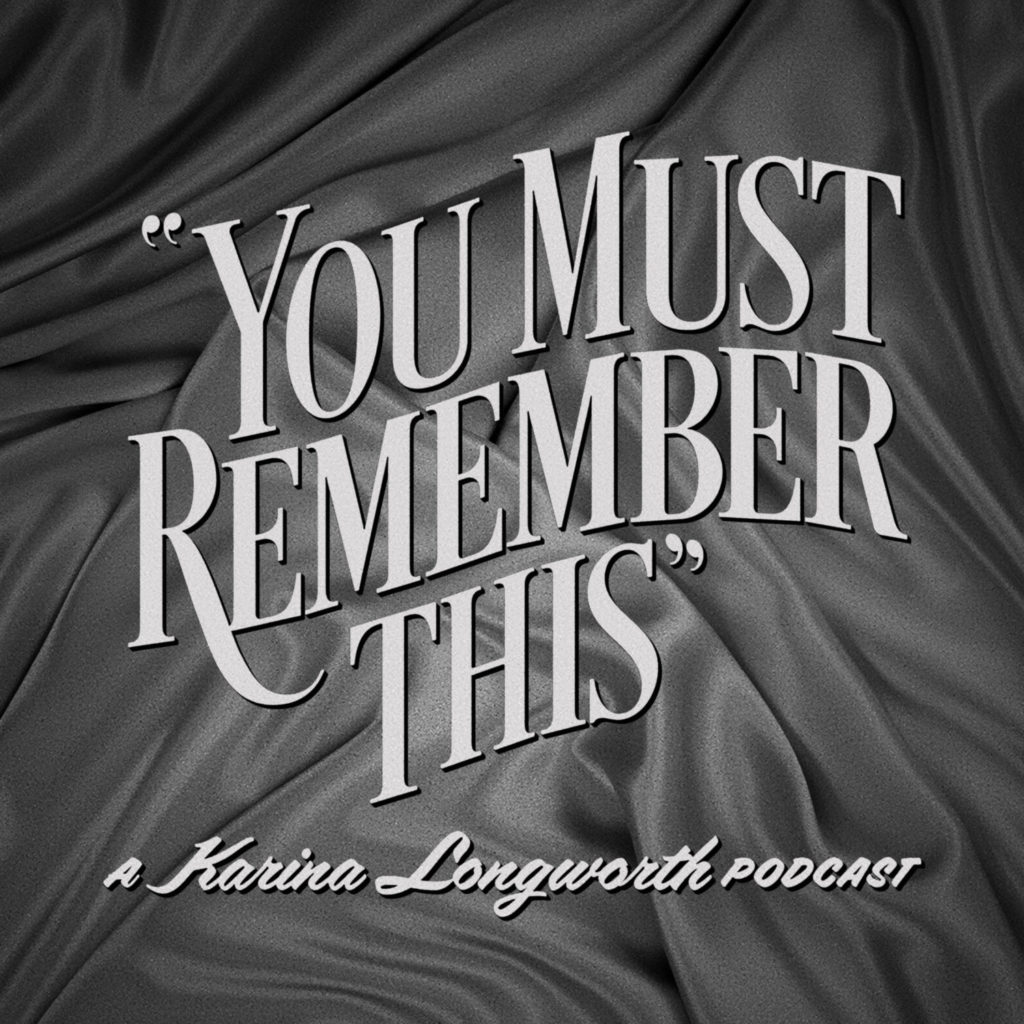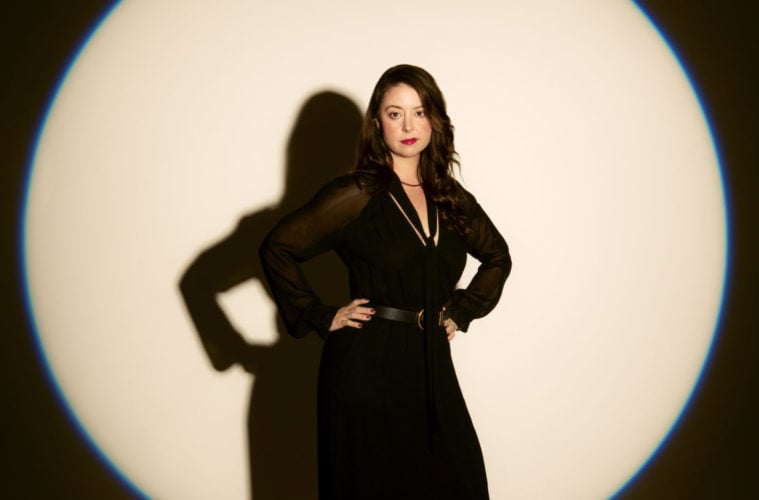Karina Longworth is the best kind of film academic. Her perspective on cinema and its history is expansive and ruminative, but her passion for the subject matter ensures whatever she delves into never comes off dry or too heady. She entertains as she educates, which is what every writer hopes to do with their work. Which is why her podcast You Must Remember This has held steady as a top film-themed listen since 2014.
The show recently won the 2021 iHeartRadio Podcast Award for TV & Film. Applying the meticulous research and detailed perspective that she’s brought as the author of books about George Lucas, Al Pacino, Meryl Streep and her latest Seduction: Sex, Lies and Stardom in Howard Hughes’s Hollywood (Custom House, 2018), the podcast tackles different themes each season. Past shows delved into everything from the mythology of the Rat Pack to the controversy behind Disney’s Song of the South, to “Dead Blondes” exploring the lives and early deaths of Hollywood’s best known screen bombshells.
This past season, she explored the significance of sex in Hollywood films during the last two decades of the 20th century, providing an important feminist context as she unraveled the evolution of X-rated movies (with focus on Deep Throat and Last Tango in Paris), sultry dramas and raunchy comedies that also became mainstream hits – from 10 to American Gigolo to Porky’s. Beyond the titillating subject matter, “Erotic 80s” & “Erotic 90s” is a highly engaging presentation about Hollywood history, but it’s more than that. Its storyteller elements suck you in. Pulling from her formidable journalistic background – Longworth co-founded seminal film blog Cinematical and was LA Weekly’s film editor and lead critic from 2010-2012 – it’s a podcast that lives up to its name. We talked about it for our Podcast Issue.
 LA WEEKLY: Many people know your work as a film critic for LA Weekly, and blogging and critiquing film. But how did that turn into the podcast?
LA WEEKLY: Many people know your work as a film critic for LA Weekly, and blogging and critiquing film. But how did that turn into the podcast?
KARINA LONGWORTH: Well, I left LA Weekly in January 2013 because I was just burnt out writing about new movies. I studied the history of Hollywood in graduate school. I was always most excited at the Weekly when I got a chance to write about retrospectives, or to interview a director who had a long filmography, where I could do research and really dig into the past with them. But that wasn’t really my beat – my assigned beat was to review all the new movies that came out. And I just lost interest in that. I wanted to try to get back to this thing that I was really interested in. So between January 2013 and April 2014, I launched the podcast.
The Podcast world has really exploded in the past few years. You were sort of on the forefront, especially for film content.
Yeah, I mean, I’d done podcasting before that, because I used to work for this company that no longer exists called Spouts, which was a social network for film fans. They had a podcast that was nominated for a Webby, which I was on. That was like 2008-2009. But obviously, there was kind of a new podcast boom, happening about seven or eight years later, when mainstream podcast hits drew more people’s attention to the idea that they were kind of a normal thing, and not just a nerdy internet thing.
What was your vision when you first started and how has it evolved?
When I was an undergraduate in art school, I was making these videos that were sort of personal diaries about the things I was watching. I would write these scripts for my own narration, and then the imagery would be a combination of stuff that I would shoot. But it was a lot of stolen footage from movies and TV shows, and obviously using that was not a legally feasible way of doing it, and this was before YouTube. So I ended up focusing on the writing. I just kind of thought of it at first as being an audio-only version of these videos I used to make. And I was sort of inspired by memories of driving around and in the ‘80s and ‘90s listening to late night radio. I really wanted it to be coming from a personal essay place. And then over time, I’ve kind of changed the format from season to season based on what the topic required.
It’s a very journalistic approach. I think a lot of journalists think about doing podcasts, but the big question is how to do it. I like your approach and point of view. How did this season about sex come about?
During 2020, my husband [Longworth is married to Star Wars: The Last Jedi/Knives Out writer/director Rian Johnson] and I were kind of revisiting a lot of movies from the ‘80s and ‘90s, that one of us or both of us had never seen before. And we sort of ended up watching a lot of movies like Jagged Edge and Black Widow, and these kinds of erotic thrillers that don’t really exist anymore. So I was curious as to why they don’t exist anymore, and what environment existed in Hollywood and what was the culture to make them thrive when they did. That was kind of the seed of it. It turned into doing a season with which is basically one episode per year of the ‘80s. And then I knew I was gonna do the ‘90s. That’s what I’m researching now. But the vast majority of this podcast from previous seasons is about from the 1920s through the 1970s.
In regard to this particular season, it made me think about what we see on screen differently and understand just how sexist things were, as well as how messed up the business side was. Are things better in Hollywood from your point of view?
I think it’s unfortunate that Hollywood is not making more movies about adult sexual relationships and, in fact, has seemed to shy away from that almost completely. When you see the reaction to a film like Fatal Attraction in 1987, you see that it was able to create an enormous discourse about how men and women relate to one another. And I feel like we’re just leaving that discourse off the table.
So much work is involved in what you do. A lot of people think, oh, everyone has a podcast, so it’s an easy thing to do. But it’s not always. Can you kind of talk about that and creating this type of podcast?
Yeah, the vast majority of podcasts are just a couple of people talking or it’s an interview. What I do is months and months of research. I write these scripts and I do archival audio research to figure out what I can find to put into the show. And I figure out if there’s anybody alive to interview, and so it’s much more like writing a book than most podcasts. Even podcasts that sound like mine that have a similar research process, there’s usually a full team of researchers. For me, it’s just me. I have one freelancer who works a couple of hours a week. Even though my show has a lot of listeners, and it’s been around for a long time, it’s still kind of a DIY process.
Is there money to be made in the podcast space?
My podcast has always been a combination of ad supported and listener supported. So you can listen to my podcast for free and there’s ads on it. If you want bonus content, then I have a Patreon, as well. At this point, I make a little bit more money from my share of the ad revenue than I make from Patreon. When I was leaving LA Weekly and trying to figure out what I was going to do, I realized there’s not a lot of jobs out there for people who have master’s degrees and study the history of Hollywood. So I had to create an opportunity for myself, and I’ve just been very fortunate that people want to listen to the show to the point where it can make a little bit of money, enough so that I can keep going. I’d rather do what I am interested in and make less money and have fewer listeners, but have the really passionate fan base that I have.
Film lovers are very dedicated, so it’s a great niche. Do you listen to other podcasts yourself? And what do you think about the podcasting space right now in general?
Yeah, I listen to other podcasts. I mean, I generally listen to podcasts that are really different from mine. Podcasting is definitely a different environment from when I started mine. I think that there’s an awful lot of competition and it must be very difficult to get your show heard. But I don’t think it’s bad. I think that what’s interesting about podcasts – there is a relatively low barrier to entry. There’s some podcasts I listen to that I don’t think get more than a couple 1,000 listens. But I really, really love them. I’ve come to feel like the people who do them are sort of my friends, because I get so excited about listening to them every week. So I think there’s room for that. There’s room for the big stars in podcasting and there’s room for everything in between.
For info including links to episodes, merch and more at youmustrememberthispodcast.com
xo
Editor’s note: The disclaimer below refers to advertising posts and does not apply to this or any other editorial stories. LA Weekly editorial does not and will not sell content.
Advertising disclosure: We may receive compensation for some of the links in our stories. Thank you for supporting LA Weekly and our advertisers.

